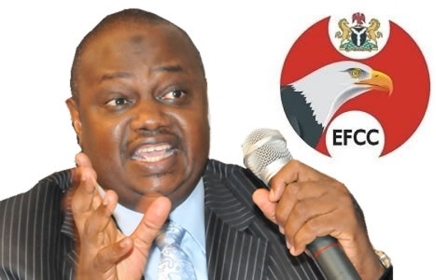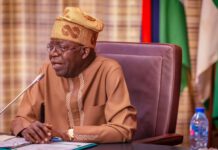 The Economic and Financial Crimes Commission (EFCC) on Friday said it had secured more than 773 convictions and recovered billions of naira since its inception in 2003.
The Economic and Financial Crimes Commission (EFCC) on Friday said it had secured more than 773 convictions and recovered billions of naira since its inception in 2003.
Mr Ibrahim Lamorde, Chairman of the commission, disclosed this on Friday in Sokoto while inaugurating the Usman Danfodiyo University chapter of ‘Zero Tolerance Club’, an anti-corruption club.
Lamorde, represented by Mr Osita Nwajah, Deputy Director, Public Affairs Department of the commission, had also delivered a paper entitled: ”Students should lead the fight against economic and financial crimes”.
He said the war against corruption and financial crimes would only be won through collective efforts.
“Economic and financial crimes constitute a great challenge to the Nigerian economy and our nation’s image, both at home and abroad.
”The commission has been reorienting Nigerians not only to see the devastating effects of corruption, economic and financial crimes in all facets of our lives, but also to rise and do something about it”, he said.
Lamorde expressed concern on the involvement of students in cybercrime, and warned them to desist from using the Internet to defraud innocent people.
”On a daily basis, the commission arrests, detains and prosecutes offenders in various cases of Internet scams”, adding that 65 per cent of those arrested were undergraduates.
According to him, it hurts so much to see the future leaders of Nigeria languishing in jail, but added that the law must take its course.
In her contribution, Hajiya Aisha Larai-Musa, Head of Public Enlightenment and Re-Orientation Unit of the commission, also decried the high rate of criminal activities among students of tertiary institutions.
She enumerated some of the crimes perpetrated by the students to include examination malpractice, advance fee fraud, cybercrime, extortion, bribery, cultism, identity theft, among others.
She said the inauguration of the club, instituted in collaboration with the National Association of Nigerian Students (NANS), was part of efforts to find lasting solution to the problems.
“The club, which is non-partisan and non-profit making, was conceived to promote awareness on corruption among students in tertiary institutions”, Larai-Musa said.
In a remark, the Vice-Chancellor of the University, Prof Riskuwa Shehu, represented
by his Deputy, Prof. Abubakar Bagudo, urged Nigerians to “collectively and frontally fight corruption”.
“Unless this is done, the dream of achieving sustainable growth and development in Nigeria would continue to elude the nation”, Shehu warned.
The Chairman of the occasion, Alhaji Abubakar Usman, commended the commission for introducing the club, saying corruption has become ”a hydra-headed monster thwarting the socioeconomic development of Nigeria”. (NAN)




